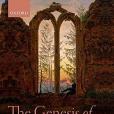《The Genesis of Neo-Kantianism, 1796-1880》是Oxford University Press出版的圖書,作者是Frederick C. Beiser
基本介紹
- ISBN:9780198722205
- 作者:Frederick C. Beiser
- 出版社:Oxford University Press
- 出版時間:2015年1月27日
- 頁數:624
- 定價:USD 99.00
- 裝幀:Hardcover
內容簡介
New work on a neglected area in German philosophy Written by a leading expert in the field Illuminates the historical and intellectual contexts of a major philosophical movement Frederick C. Beiser tells the story of the emergence of neo-Kantianism from the late 1790s until the 1880s. He focuses on neo-Kantianism before official or familiar neo-Kantianism, i.e., before the form...(展開全部) New work on a neglected area in German philosophy Written by a leading expert in the field Illuminates the historical and intellectual contexts of a major philosophical movement Frederick C. Beiser tells the story of the emergence of neo-Kantianism from the late 1790s until the 1880s. He focuses on neo-Kantianism before official or familiar neo-Kantianism, i.e., before the formation of the various schools of neo-Kantianism in the 1880s and 1890s (which included the Marburg school, the Southwestern school, and the Göttingen school). Beiser argues that the source of neo-Kantianism lies in three crucial but neglected figures: Jakob Friedrich Fries, Johann Friedrich Herbart, and Friedrich Beneke, who together form what he calls 'the lost tradition'. They are the first neo-Kantians because they defended Kant's limits on knowledge against the excesses of speculative idealism, because they upheld Kant's dualisms against their many critics, and because they adhered to Kant's transcendental idealism. Much of The Genesis of Neo-Kantianism, 1796-1880 is devoted to an explanation for the rise of neo-Kantianism. Beiser contends that it became a greater force in the decades from 1840 to 1860 in response to three major developments in German culture: the collapse of speculative idealism; the materialism controversy; and the identity crisis of philosophy. As he goes on to argue, after the 1860s neo-Kantianism became a major philosophical force because of its response to two later cultural developments: the rise of pessimism and Darwinism. Readership: Scholars

